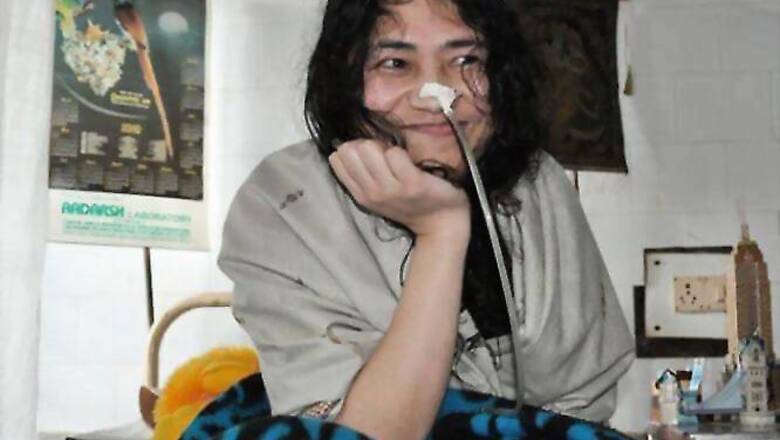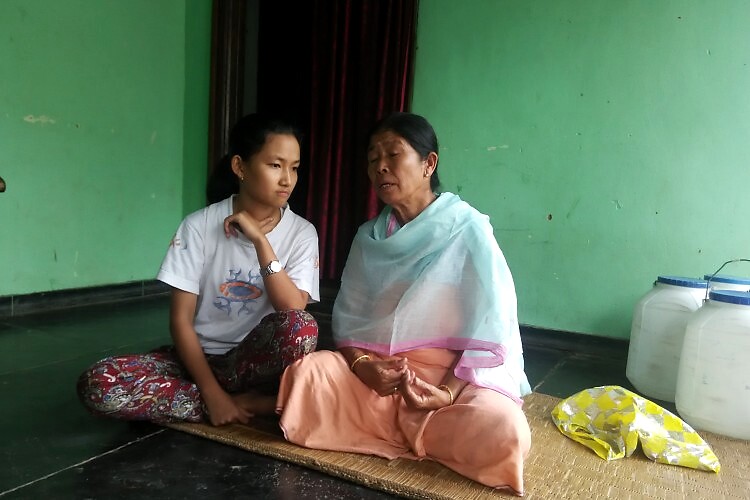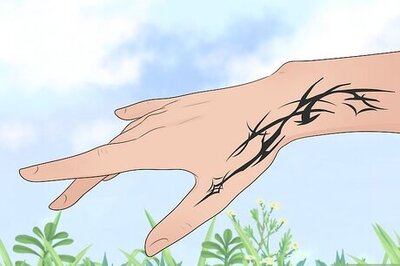
views
At 3.15pm on November 2, 2000, there was a loud explosion in Malom, followed by sounds of gun fire. When the residents of the area went out, they saw 10 of their own brutally shot dead on the streets and at the bus stop. Later, 42 others were dragged out of their houses and severely beaten up, allegedly by the personnel of the Assam Rifles. Next day, the local newspapers published graphic pictures of the massacre. Moved by the barbaric shooting, Irom decided it was time for action. She had a meal at home and left for Malom.
On November 5, 2000 she began her hunger strike, protesting against what was now called the ‘Malom Massacre’, and removal of Armed Forces Special Powers Act (AFSPA) from Manipur. Three days later, she was arrested and charged with an ‘attempt to commit suicide’. Since then, she has been in confined to four walls of a hospital and regularly force-fed through tubes. This routine has continued for 16 long years, in a country where life convicts are often pardoned after 14 years’ imprisonment.
In Malom, Irom has a Godlike status. T Somorendra Singh, convener of Malom Memorial Park calls Irom “next only to God". “Despite being a victim of AFPSA and losing my son to the massacre, I continue to enjoy the basic rights of life. I eat my food, I travel and I can speak to whoever I want. But Irom has not tasted food in the last 16 years; what she has done for us is immense. Because of her, this issue has gone international," he said.
Sinam Chandrajini lost three members of her household that day. One of her sons had gone to drop her sister and the other one was on his way home. All three of them were shot dead. Even today as she recounts the story, her eyes well up. Her younger son Chandramani was a national bravery award winner. She recounts how he went to receive the award from the then Prime Minister Rajiv Gandhi. The forces, however, didn’t check that before gunning him down. Young Chandramani was just 17 years old then. Chandrajini expresses her gratitude for Irom. Though she is unsure how fruitful Irom’s decision to contest elections would be, she says every vote from Malom would go to her, undoubtedly.

Her son Sinam Kamal is a little uncertain about the “Iron Lady’s" decision to enter politics. He feels that 16 years of confinement have had an impact on her. But when asked if he would vote for her if she stands for the polls, Kamal said there isn’t a doubt he would.
While Irom has the support of Malom, the civil society remains hesitant. So far, they have not been able to have a detailed discussion with her since her declaration. Babloo Loitongbam, Irom’s brother and a few others had tried to meet with her, during her daily stroll—when she is allowed to come out in the sun for 15 minutes each day. But the moment the authorities saw her talking to them, she was pulled back into the hospital. Irom’s agitated parting words to Babloo were, "See, this is my fate. I am not even allowed to speak to my people".
Probably this is the very thought that propelled her to take the decision of breaking the fast, as the state remained unmoved in last 16 years. As Babloo sums it up, “Irom’s fast exposes the hypocrisy within the Indian state. The very foundation of this country was based on Satyagraha, but even as we eulogize Mahatma Gandhi, we don’t respect his ideals. Or anyone who uses Satyagraha as the method to bring about a change."
















Comments
0 comment